Deal With Iran Disastrous, Absolutely Catastrophic – US Senator
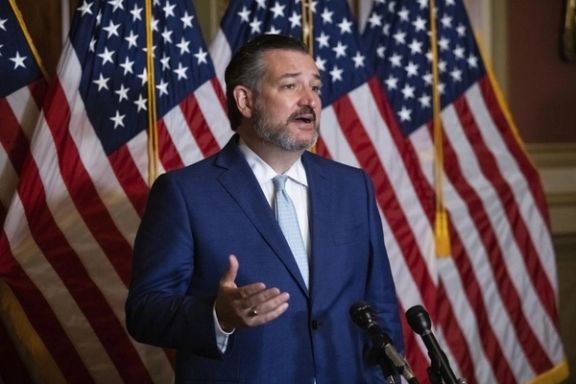
US Senator Ted Cruz told Iran International that reviving the 2015 nuclear deal will be “disastrous and absolutely catastrophic,” warning the administration against its repercussions.

US Senator Ted Cruz told Iran International that reviving the 2015 nuclear deal will be “disastrous and absolutely catastrophic,” warning the administration against its repercussions.
Expressing hope that the talks to restore the deal go nowhere, the senator for Texas told our correspondent Arash Aalaei on Thursday, "The Biden White House seems bound to shovel hundreds of billions of dollars into the hands of a theocratic despot who routinely chants 'death to America' and 'death to Israel'."
“If this deal goes through, that money will be used to murder Americans and our allies, and it would dramatically accelerate the process of the Ayatollah getting a nuclear weapon which if God forbid, he does, could well be used to murder millions of Americans,” he added.
Cruz went on to criticize President Joe Biden’s foreign policy, which, he claims, have emboldened Russian President Vladimir Putin to attack Ukraine. “This (Ukraine) war should never have happened. It only happened because of Joe Biden's weakness and appeasement.”
“First of all, in surrendering Afghanistan and signaling weakness to all of our enemies, but then secondly in waiving sanctions on Nord Stream 2 pipeline, handing a multi-billion-dollar gift to Putin, which was the direct and incipient cause of Putin's invasion of Ukraine,” he said.
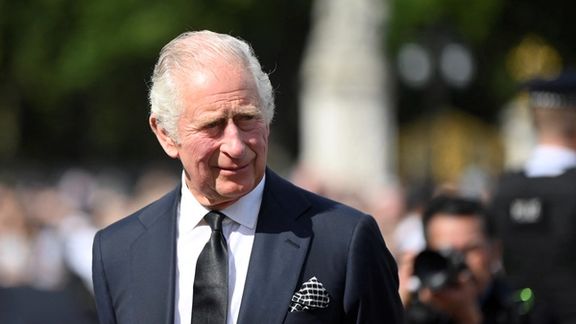
Unlike other countries, Iran has not sent condolences to the newly enthroned King Charles III of Britain following the death of his mother Queen Elizabeth II.
“The stances of the Iranian government in diplomatic matters are usually against accepted international norms and this is not surprising to those who regularly follow developments related to Iran,” Germany-based political analystPezhman Golchin told Iran International.
World leaders, including those of Iran’s neighbors such as Turkey and Saudi Arabia, and even the Russian President Vladimir Putin, have sent condolences to the British government and King Charles who has succeeded his mother. The Islamic Republic of Iran andthe Islamic Emirate of Afghanistan have remained silent.
The British monarch visited Iran in 1961, at the end of an extensive Tour of India and Pakistan but not after the Islamic revolution of 1979. Prince Charles who was patron of the British Red Cross, however, made an unofficial visit to the Iranian city of Bam in February 2004 following a devastating earthquake that left around 30,000 people dead. The Prince met with Iran’s president Mohammad Khatami who was considered a more moderate leader.

Golchin said the long-standing disputes between the Islamic Republic and Britain which date back to the Islamic Revolution of 1979, and the fact that the British embassy was stormed and taken over by hardliners in 2011 could be among the reasons for the silence of Iranian officials.
Iran’s exiled Prince Reza Pahlavi, however, condoled the British people and royal family on behalf of himself and his family in a message soon after the announcement of the Queen’s death. Prince Reza Pahlavi said in his message that Queen Elizabeth will be remembered as a symbol of wisdom, strength, and grace.
Some hardliners who are generally against the institution of monarchy, beside hostility towards Britain, have even expressed delight over the Queen's death in their social media posts while some others have opined that withholding condolences is a sign of Iran's “independence”.
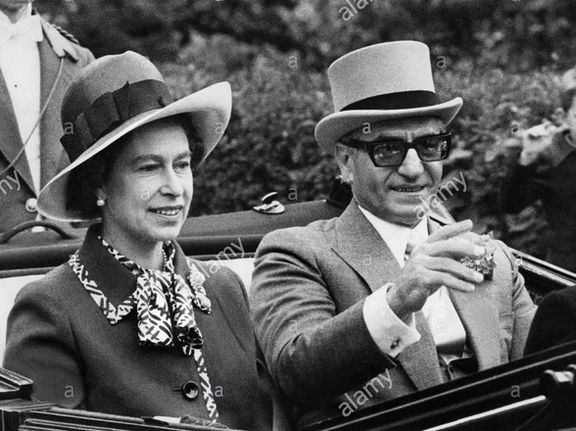
In his speeches, Iran's Supreme Leader Ali Khamenei usually refers to Britain as the “Evil Britain” and his disdain is on par with his hostility towards the United States, the “Great Satan”.
In July 2009 during protests following a disputed election which put his favorite candidate Mahmoud Ahmadinejad back in office, Khamenei alleged that Britain had fomented unrest in the country. Soon after his speech Iranian security forces arrested nine local staff of the British embassy in Tehran for alleged incitement of protesters to unrest and espionage.
On November 29, 2011, a group of hardline students many among whom were affiliated with the Basij militia attacked the UK embassy compound a day after Tehran downgraded its diplomatic relations with London over a new sanction imposed on Iran. Attackers took over the embassy for a few hours and forced staff to leave the compound. The UK closed its embassy on the following day and ordered Iranian diplomats to leave London. The two countries only restored full diplomatic relations in August 2015.
Tensions rose again in July 2019 when fast boats of the Revolutionary Guard (IRGC) had an encounter with the British Royal Navy After trying to impede their movement in the Strait of Hormuz.
Relations between Iran and Britain date back to the 13th century but it was in the 19th century that the British Empire became deeply involved in Iranian politics and a negative attitude towards British, and its rival Tzarist Russia began to take deep roots among Iranians. This negative attitude grew worse following the 1953 coup that overthrew the nationalist prime minister Mohammad Mossadegh and restored the Shah.
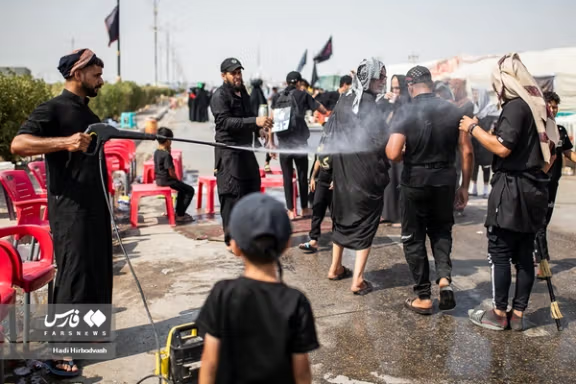
Iran’s Red Crescent Society announced Friday that at least nine Iranians who were on a pilgrimage to the Iraqi city of Karbala for a Shiite religious event have died.
Pir-Hossein Kolivand, the head of the Iranian Red Crescent Society (IRCS), said that more than 8,400 Iranian pilgrims have been treated or got an IV at the society’s makeshift clinics for cases such as extreme dehydration or low blood sugar in and around the Iraqi cities of Karbala, Najaf, and Kadhimiya.
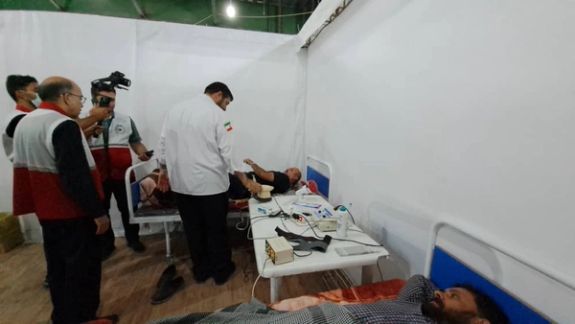
Social media is full of posts and videos of people complaining about the crowded border crossings with insufficient facilities.
Mojtaba Khaledi, the spokesman for the Iranian Medical Emergency Organization, said on Thursday that over 10,300 pilgrims have been referred to healthcare stations with signs of heatstroke.
Three more Iranians died earlier in the week in Iraq's Wasit Governorate, which borders the Islamic Republic.
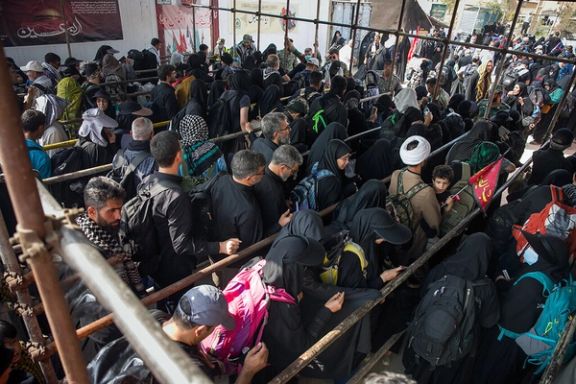
Earlier in the day, Iraq and Iran closed land borders over safety concerns as millions of Iranian pilgrims supported by Tehran were on the move to reach Karbala for Arbaeen. The pilgrimage is on the occasion of Arbaeen, the 40th day after the death of the third Shiite Imam, Hussain Ibn Ali, who was killed in a power rivalry by the reigning caliph in a clash in Karbala in 680 AD.
Majid Mir-Ahmadi, the head of the Arbaeen pilgrimage headquarters, said that “in the wake of worrying incidents that happened at the Shalamcheh and Mehran borders and serious threats to the health and security of the pilgrims, high-ranking officials decided to close borders until further notice,” mentioning “a lack of proper infrastructure in Iraq for accepting the pilgrims” and “hot weather" as reasons behind the decision.
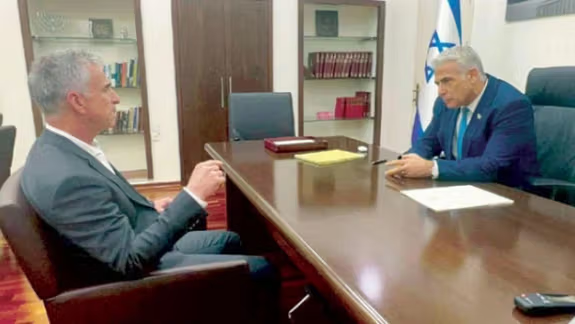
Mossad chief David Barnea has shared "sensitive intelligence materials" with heads of CIA, FBI, Pentagon and other top officials, warning US against being cheated by the Islamic Republic’s lies.
Barnea, who wrapped up on Thursday a trip to Washington for high-level talks as part of Israeli efforts against reviving the 2015 nuclear deal with Iran (JCPOA), held meetings with CIA chief William Burns, FBI Director Christopher Wray, National Security Adviser Jake Sullivan, US Defense Secretary Lloyd Austin, Chairman of the Joint Chiefs of Staff Mark Milley and some senior officials at the State Department.
According to a statement by the Prime Minister’s Office, the Mossad chief showed the officials “sensitive intelligence materials” and stressed “Israel will not be able to stand idly by while Iran continues to deceive the world.” “The enrichment of uranium to 60% means that they now have the tools and can make at least one nuclear bomb,” Barnea told US officials.
“The director of the Mossad heard from his counterparts that the US remains committed to the security of the State of Israel,” the statement read, adding that “The Americans emphasized that they will not allow Iran to obtain a nuclear weapon and that they will continue to act in full cooperation with the State of Israel with regards to regional issues in the Middle East concerning the security of the State of Israel.”
Barnea is the third Mossad chief who has fought against Iran’s nuclear dealover the last decade in visits to Washington. Tamir Pardo in 2012, before the interim deal that led to the JCPOA, and Yossi Cohen in April 2021, in the heat of America's first round of negotiations to return to the deal, tried to dissuade Washington from signing an agreement with Iran.
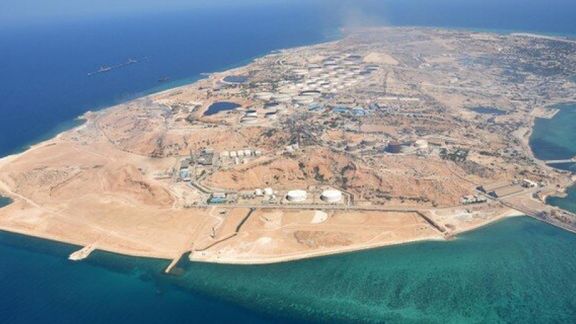
Iran has reasserted its claim to sovereignty over three Persian Gulf islands after Gulf Cooperation Council (GCC) foreign ministers met this week in Riyadh.
Foreign ministry spokesman Nasser Kanaani said Friday that Abu Musa, Greater Tunbs, and Lesser Tunbs were all Iranian, rejecting the GCC view that the islands belong to the United Arab Emirates (UAE). Kanaani said the GCC claim was “opening the security equations of the region to foreigners.”
The three islands have been in dispute since the British withdrew their armed forces in 1971 and Mohammad Reza Shah sent the Iranian navy to secure all three. Iranian forces remain on the islands, with only Abu Musa having much of a civilian population at several thousand.
Kanaani stressed Tehran’s wish for improved relations with the GGC member states, a central commitment of President Ebrahim Raisi since taking office in August 2021. Relations between Iran and the six GCC member-states have thawed with August’s return to Tehran of Kuwaiti and Emirati ambassadors, and with cautious Saudi-Iran dialogue since last year mediated by Iraq.
Raw nerve
But the statement closing the GGC foreign ministers’ meeting, their 153rd, in making a routine reference to three islands, has touched a raw nerve in Tehran amid wider tensions. Amongst the GCC, Qatar and Oman would welcome the return of the 2015 nuclear deal, the JCPOA (Joint Comprehensive Plan of Action), and have both mediated between Tehran and Washington.
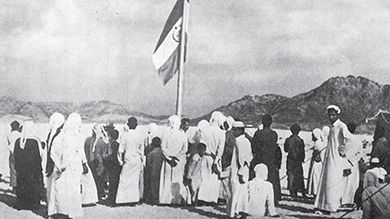
But even after President Joe Biden’s July visit to Jeddah, Saudi Arabia remains skeptical. The Saudis loudly opposed the JCPOA when it was agreed in 2015, and Crown Prince Mohammad bin Salam closely identified with President Donald Trump, who withdrew the US from the JCPOA in 2018.
In a piece Friday, Fars News republished a 2006 article written by Hossein Shariatmadari, long-serving editor of the flagship principlist daily Kayhan, establishing the “historical and legal reasons for Iran’s ownership.”
Maps from ancient Greece
With barely concealed contempt for the six nations of the GCC, none of which he pointed out had existed for as long as 100 years, Shariatmadari referred to maps and documents going back to ancient Greece, arguing that geographers and officials had considered the islands part of Iran. Shariatmadari gave particular mention to the work of the British, including an 1881 Royal Navy map with “the three islands and the soil of Iran” in the same color.
Shariatmadari headlined his 2006 article Avaz Kuche Baghi, ‘songs of the garden alleys,’ referring to old stories of passers-by singing to keep up their spirits as night fell. Similarly, the editor suggested, the Arab monarchs of the Persian Gulf ‘sang’ to dampen their fears of the “earthquake that the Islamic Revolution has thrown on their medieval and illegal governments” whose people lacked “the least involvement” in “the rule of one family.”
Shariatmadari also argued that Bahrain, which became an independent state 1971, had been “separated” from Iran in an “illegal conflict.” After the British took over Bahrain in the late nineteenth century there was agitation in the Iranian parliament by the 1950s to declare it an Iranian province, but Shah Mohammad Reza abandoned Iran’s claim in 1970.
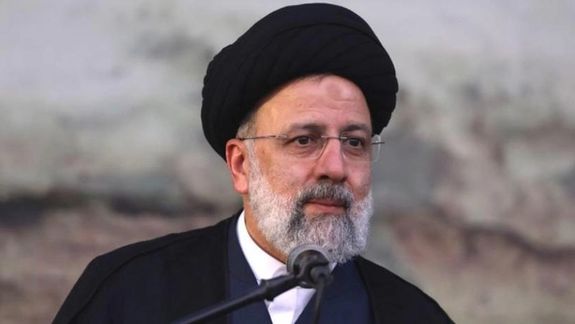
A bipartisan group of 52 US representatives has called on President Joe Biden to deny necessary "entry visas" for Iran’s President Ebrahim Raisi and his delegation to attend the UN Assembly.
The lawmakers led by Rep. Young Kim (R-CA), wrote in a letter published on Thursday, "The United States cannot overlook Ebrahim Raisi’s direct involvement in gross violations of internationally recognized human rights, including the 1988 organized mass murder of thousands of political prisoners, among whom were women and children, by the Iranian regime."
The lawmakers told the President that “Raisi was a documented member of the Tehran 'death committee,' the group responsible for overseeing the massacre. It is highly concerning that Raisi and other members of the so-called ‘death committee’ have not been investigated and charged with crimes against humanity.”
Also on Thursday, a group of 500 Iranian-American scientists, academics, and professionals urged Biden to pursue Raisi’s international prosecution, saying that “Raisi does not represent the people of Iran and therefore must be denied entry visa to the US."
Since early August, eight Republican Senators, former US ambassador to the United Nations Nikki Haley, and former secretary of state Mike Pompeo have asked Biden to deny a visa to Raisi who plans to travel to New York City for the upcoming 77th United Nations General Assembly, which opens on September 13.
Raisi – who is on US and European sanctions list -- did not attend the UN meeting in 2021 and only delivered a video speech.